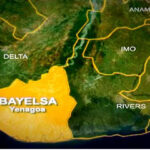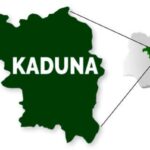Nigerians fleeing conflict zones are finding their way back home. The National Emergency Management Agency (NEMA) stands at the forefront, offering hope, dignity, and a lifeline to rebuild shattered lives. These returnees, arriving from conflict-stricken regions such as Niger, Libya, and Sudan, carry stories of survival, resilience, and loss. Their return raises critical questions: How do we support them? How do we help them move forward?
In the last two months, NEMA has stepped up to welcome hundreds of returnees. Airports across Nigeria have become the first points of contact, where the agency, in partnership with the International Organisation for Migration (IOM) and other bodies, ensures a smooth and dignified reception. The process is detailed and compassionate—prioritising safety, comfort, and the well-being of every returnee.
In Lagos, 148 Nigerians recently returned from Niger. They included men, women, and children, each greeted warmly as they stepped back onto home soil. NEMA coordinated biometric registrations, conducted health screenings, and offered emotional support. Agencies like DSS, NCFRMI, FAAN, and NIS played key roles, creating a seamless process that showed the power of collaboration in addressing humanitarian challenges.
Sometimes, emergencies happen even before reintegration begins. In October 2024, a young woman who had just returned from Libya collapsed moments after arrival. Her low blood sugar levels left her unconscious, but the emergency response team acted swiftly to save her life.
However, the airport reception is just the start. Reintegration poses a much bigger challenge. Many returnees, particularly those from Libya, have suffered unspeakable hardships. Some are victims of human trafficking, while others, seeking better lives, were forced into labour or exploitation. They return with shattered dreams, physical scars, and deep psychological wounds.
NEMA, working with IOM, goes beyond providing immediate aid. Through skill acquisition and reintegration programmes, the agency offers returnees a chance to rebuild. These programmes empower them with practical skills, helping them find jobs or start small businesses. This approach not only supports individual livelihoods but also contributes to the socio-economic development of the country.
But these efforts are not enough to address the growing wave of returnees. Nigeria must focus on long-term solutions. Security, job creation, and economic stability are crucial. Many Nigerians embark on dangerous journeys because of poverty, unemployment, and insecurity at home. By addressing these root causes, the country can prevent forced migration and offer its citizens a better future.
Mental health is another critical need. Many returnees carry invisible scars—anxiety, depression, and trauma from harrowing experiences abroad. Without proper mental healthcare, reintegration becomes even harder. NEMA must expand its partnerships with mental health professionals to offer holistic support. A trauma-informed approach can empower returnees to heal, grow, and thrive in their communities.
NEMA’s work is more than humanitarian—it is a national mission. By turning returnees’ struggles into opportunities, the agency reinforces Nigeria’s capacity to care for its most vulnerable citizens. These returnees are not just victims—they are survivors with immense potential. Their resilience, coupled with the right support, can drive unity and progress in the nation.
Homecoming should not mark the end of their journey. It should be the beginning of something brighter—an opportunity for returnees to find stability and for Nigeria to build a stronger, more inclusive society. Through compassion, collaboration, and strategic action, NEMA stands as a beacon of hope for returnees and a model of resilience for the nation.
Abdulhamid Abdullahi Aliyu, a youth corps member with Centre for Crisis Communication, can be reached via [email protected]
 Join Daily Trust WhatsApp Community For Quick Access To News and Happenings Around You.
Join Daily Trust WhatsApp Community For Quick Access To News and Happenings Around You.


